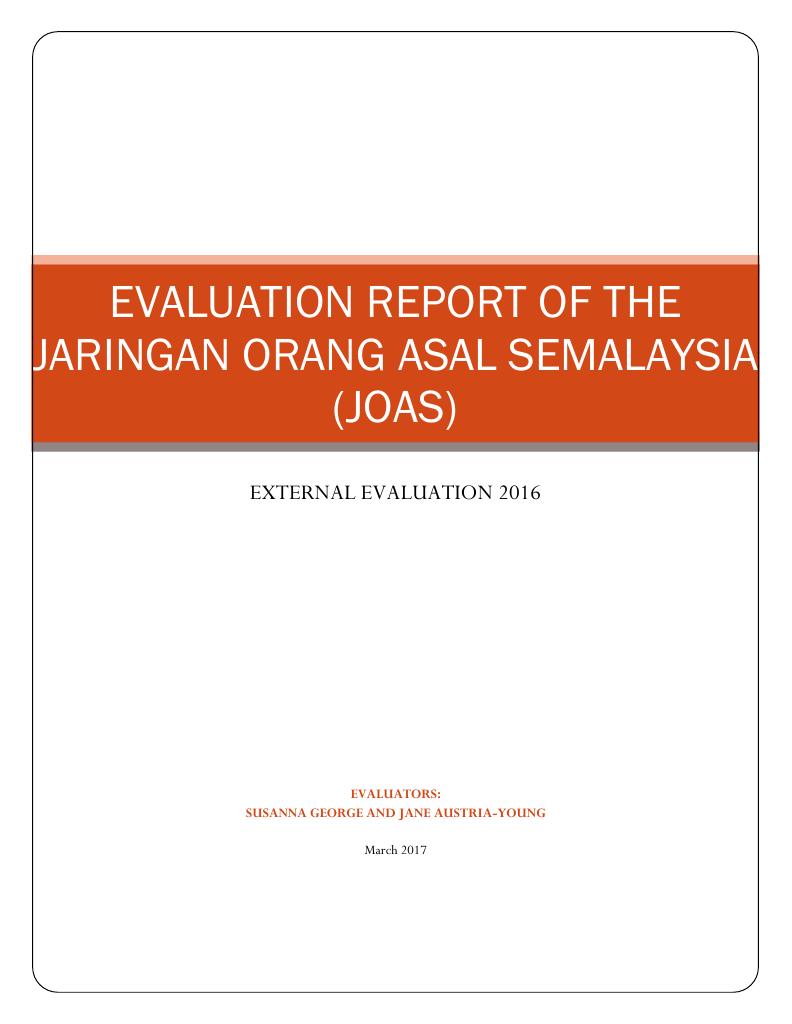Evaluering
Evaluation Report of the Jaringan Orang Asal Semalaysia (JOAS)
Background In 2016 RFN and JOAS agreed to commission an external evaluation for the period 2014-2017. The evaluation was requested by JOAS. Purpose/objective The key objectives of the evaluation were to assess the relevance, efficiency, effective, responsiveness, and sustainability of JOAS programs and activities and its advocacy strategies locally, nationally and regionally. The evaluation was also aimed at providing JOAS with key recommendations that might support its refinement and further strengthening of its programmatic, institutional and strategic aspects. In addition, the evaluation provided inputs to JOAS’ approaches and strategic planning; and to RFN as input to our organizational reflection, our theory of change and strategic direction for 2018-2022. Methodology Two evaluators, one local and one international, were appointed. The evaluators selected the Universalia evaluation framework developed by the International Development Research Framework (IDRC) which is useful in the evaluation of non-profit organisations. In October 2016 the evaluators spent two weeks gathering data in field visits in Sabah, Sarawak and Peninsular Malaysia where JOAS has its members. During this period they conducted a series of interviews, facilitated workshop-style information gathering activities, gathered documents and secondary materials and engaged in participatory observation. Key findings The evaluators noted that JOAS has grown into a nation-wide and professional network in only few years. Despite significant geographic, political, cultural, and technological limitations, JOAS has managed to pull together a vast network of members that has contributed to the empowerment of indigenous peoples in Malaysia. In the period the JOAS membership has increased from 21 to over 100 member organizations. JOAS has become an indigenous peoples’ platform in national, regional and international advocacy work, and participated in a range of strategic policy interventions on indigenous peoples’ rights and land rights with considerable political influence. JOAS has worked strategically to involve women and youth in the indigenous movement. Recommendations Some minor organizational weaknesses linked to organizational development, internal capacity building and lateral communications were discovered and discussed with JOAS member organization and staff. Comments from the organisation Despite the favourable evaluation, RFN has decided to phase out JOAS in line with an organizational decision to reduce the number of target countries in the next strategy period. During a two-year transition period, JOAS will receive gradually reduced funding, as the network is highly dependent on RFN’s support. The evaluation has provided JOAS with valuable recommendations that can increase its ability to attract new donors and ensure sustainability of its results.
